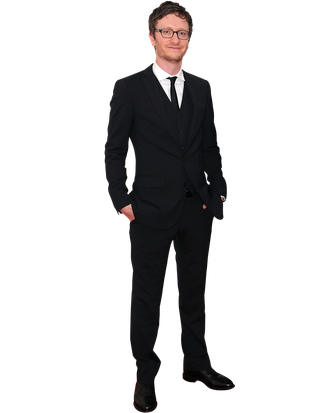
When he’s not directing SNL “Digital Shorts” about penises, Akiva Schaffer can be found making movies that liberally reference penises. This weekend, he releases his second full-length film, The Watch — a potty-mouthed comedy starring Ben Stiller, Vince Vaughn, and Jonah Hill as suburban vigilantes who stumble upon an alien invasion. We asked Schaffer about his own onscreen sexcapades, how to handle actors wielding sharp objects, and blowing up stuff. Then we buckled down for a serious chat about how the tragic Trayvon Martin murder affected Schaffer’s movie.
Are you going to direct any more “Digital Shorts” for SNL?
I didn’t really work there even this season, because I was working on this movie the whole time. So I haven’t really been there for a year. But me and Andy are hopefully making a new [Lonely Island] album and will get to make music videos for that. If we do, I’ll certainly be offering them for SNL, if they want to air them.
You have a very disturbing cameo at an orgy in this movie. What will you say to your daughter when she is finally old enough to see this movie?
Hmmm. I’m going to cross that bridge when I get to it. I wonder how old I’ll let her be before she sees this movie. I dunno, 16?
Or you can be one of those parents that doesn’t let your kid watch any entertainment.
Yeah, well, that was my parents. I grew up in Berkeley. One time, my mom told us, “No TV.” It was 3 p.m., and I was sneaking it in. She put her hand on the back of the TV to see if it was warm, and it was. So she pulled the cord out of the wall, opened the second-floor window, and just threw it out the window. It was pretty hard-core. As soon as I went to college, I got cable. 150 channels! That’s why I’m addicted to television now.
Was it weird directing a property you didn’t play a part in creating?
Jared Stern [Mr. Popper’s Penguins] wrote the original movie that was written three years ago. Then Evan Goldberg and Seth Rogen turned it into their type of movie. I read Seth and Evan’s version — that made me want to make it. And they did rewrites throughout the movie, so they were really involved.
How much of this movie was improved?
These guys know their voices so well, so we’d do a few takes as written, then let them try things.
Jonah’s character wields a switchblade a lot. Was that dangerous?
As soon as Jonah got to Atlanta [where they shot], the stunt coordinator immediately put a dull version of it in his hand, so he didn’t cut himself. Then he taught him how to use it. Jonah kind of had it in his hand for the next two weeks. I don’t know how rigorous his training was, but he was taking it really seriously.
What was it like getting to set off a bunch of explosions?
I constantly tried to add explosions. Even in the background of romantic scenes, I’ll look for anything that can explode. Once you get a taste for CG, you realize you barely even have to make the movie. You can just add everything afterwards. There’s one moment where stuff is flying through the air in slow motion and, like, crashing on the ground. We got to really throw things off the roof and see how they looked like on fire, hitting the ground, which is just always a joy.
What inspired you to cast Billy Crudup, who isn’t really associated with comedy?
I had met him briefly once before, but just briefly at [an event]. And I just knew I wanted it to be somebody surprising. That character is supposed to be quite strange — you’re not supposed to be able to put your finger on quite where he’s coming from. We did so many takes to find out where the line was between strange and crazy.
On a far more sobering note: What was the first thought that popped into your head when you heard about the Trayvon Martin murder? [The Watch’s original title was Neighborhood Watch; the studio changed it in response to the shooting.]
I honestly didn’t connect it at first: I heard the story like everyone else and was appalled and saddened by it. Then I started getting e-mails from friends. At first, I was actually annoyed at the e-mails because the movie has nothing to do with it. But then, in the next few weeks, the press and more friends were e-mailing me. People really were connecting these two because of the title.
At what point did you go into crisis mode?
When it went all the way up, to the head of the studio. I knew at that point the problem was even bigger than my decisions. I was in editing and just sort of put my head down and worked on the rest of the movie. We wanted to make sure we were really sensitive to the tragedy and respectful to the people whose lives were affected. So it became really clear that we should break that connection. It shouldn’t be there. It felt like the right thing to do, too.

